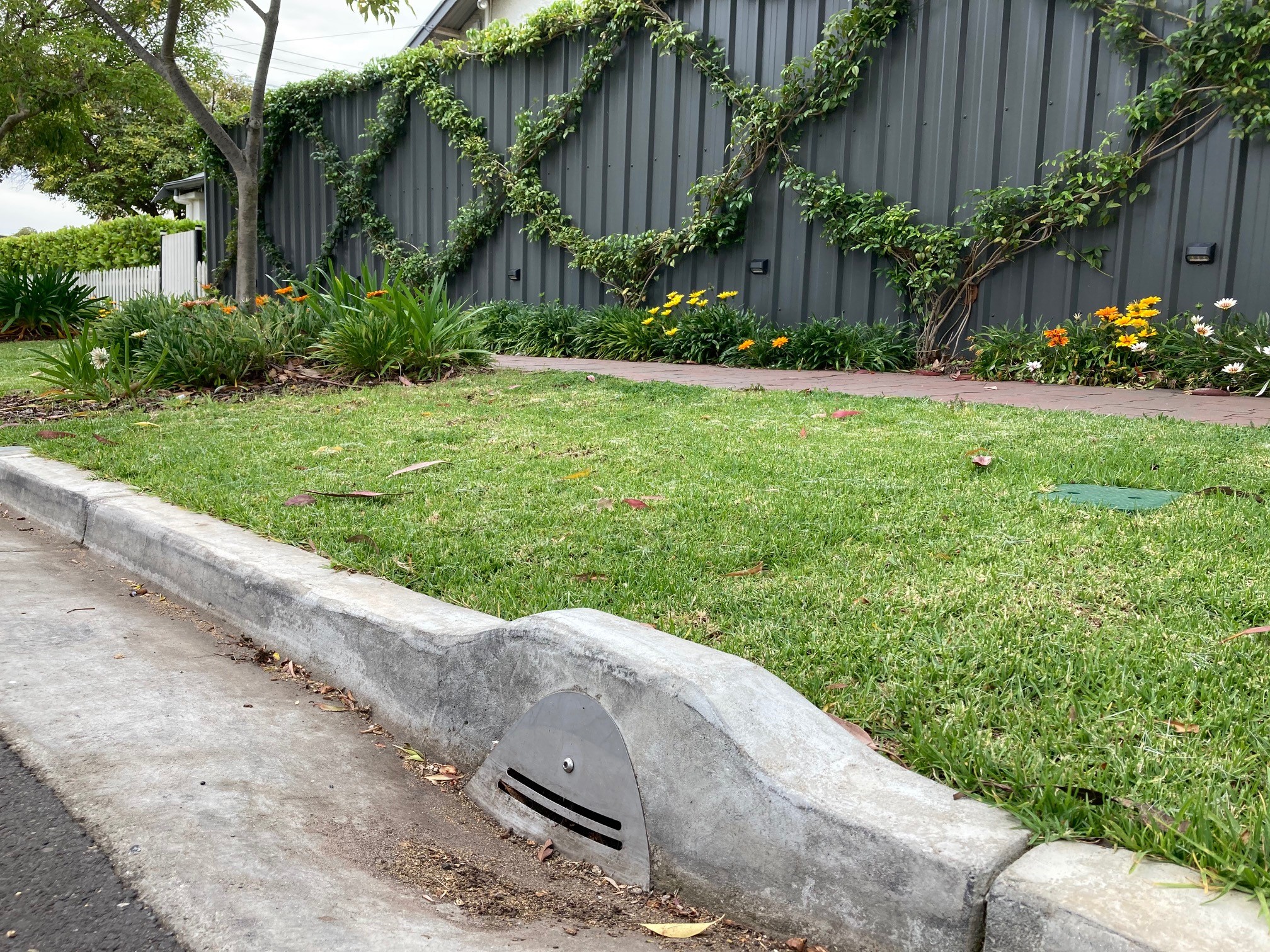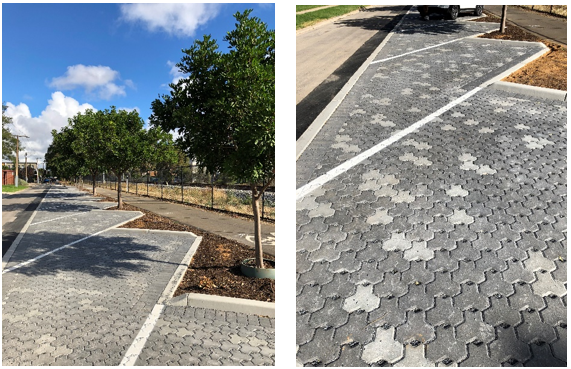Water Sensitive Urban Design
Water-sensitive urban design (WSUD) promotes the sustainable use and re-use of water in urban development and buildings.
This type of design integrates the urban water cycle (including rainwater, stormwater, groundwater, mains water and waste water) with the built and natural urban environment.
WSUD measures and tools can be applied to residential, commercial and industrial developments and buildings. They range from the storage, treatment and use of runoff to water-efficient landscaping.
WSUD can help communities achieve greater water sustainability and become more pleasant places to live and work.
Council has many projects that aim to conserve, recycle and improve water quality for the City and beyond.
- Treenet inlets in our kerbs to direct stormwater into the verge to water street trees,
- Raingardens to slow down, capture and filter stormwater that flows down our streets,
- Permeable surfaces to reduce runoff and help water the trees in our streets and parks.
To see our water smart solutions in action, or to learn how you can capture and re-use water in your home and garden, visit resilienteast.com/water

Treenet Inlets
City of Prospect has installed over 80 treenet inlet systems in our roadside verges.
Treenet inlets collect stormwater from our streets when it rains and diverts it into leaky wells within the verge where it is used to irrigate trees, keeping the trees healthy and our city greener and cooler.
Benefits of Treenet Inlets include:
- Each treenet inlet captures over 10,000 litres of rainwater for the trees in an average year.
- They help to cool the neighbourhood. Recent studies in Adelaide have shown that treenet inlets can increase evapotranspiration rates in urban trees to help moderate urban heat islands. It is estimated that each treenet inlet adds the equivalent of a 5kW evaporative air conditioning unit to the street for the extra cooling the trees provide.
- They assist in a reduction in flooding and pollution issues downstream by collecting rain where it falls and using it in the local environment
- By positioning the water infiltration zone (leaky well) midway between two street trees, tree roots are encouraged to grow sideways along the verge towards the water source and away from other infrastructure, minimising damage to footpaths, kerbs and road surfaces.
The treenet inlet is a small unobtrusive grate and dish in the kerb that connects through to a concealed collection pit in the verge where it detains the water until it soaks into the soil in the verge. When it rains there is sufficient flow for the tree inlets to collect stormwater while simultaneously excluding leaves and other street debris. The concrete bowl design acts as a mini vortex which throws out big leaves and other debris so it does not clog up the grate.
If a treenet inlet is installed near your property you can help by keeping the inlet free of leaves and silt, helping your street trees to thrive.
As City of Prospect undertakes further streetscape improvements as part of its road and kerb upgrade program, more treenet inlets will be installed.

Permeable Paving
Stormwater runoff transfers pollutants from the urban environment into local streams, rivers and coastal waterways, and can cause localised flooding. Permeable paving helps to reduce runoff and also improve the growing condition for street tree roots
Permeable paving has been installed in the carpark on Devonport Terrace as part of the Charles Cane Reserve Upgrade. Instead of replacing an ageing spoon drain with the same type of drain that would continue to divert water directly into the stormwater system, we installed permeable paving which has also helped with managing issues, including water ponding. The paving allows the water to travel through a gravel base to soil beneath, providing water to the street trees.
